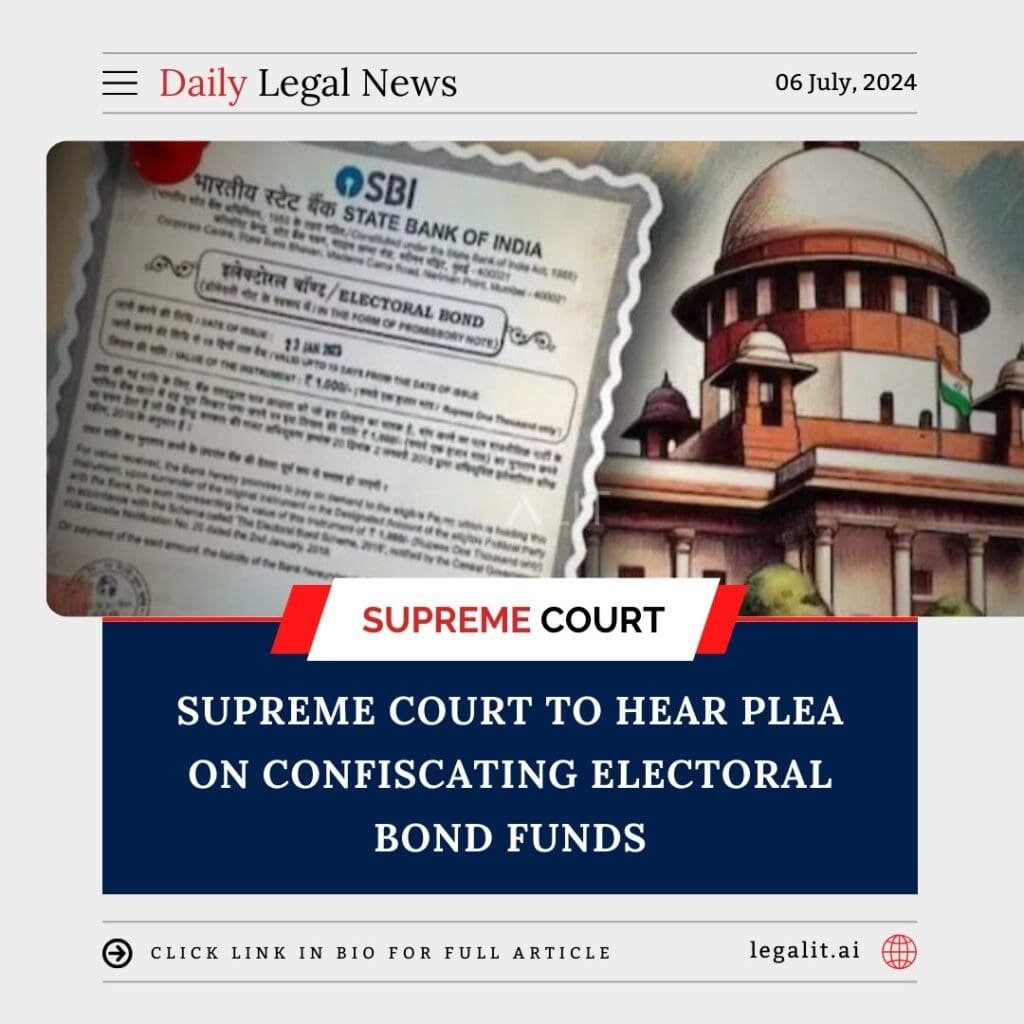
The Supreme Court of India is set to hear a Public Interest Litigation (PIL) that seeks to confiscate money received by political parties through electoral bonds. The plea argues that the funds acquired through these bonds should be seized, as the scheme has been declared unconstitutional by the Court.
Key Points:
- Supreme Court’s Directives:
- The Supreme Court has previously criticized the electoral bond scheme for its lack of transparency and potential to enable corruption. The Court noted that the scheme allows for anonymous donations, which could facilitate quid pro quo arrangements between political donors and parties.
- Current Legal Developments:
- The Court has instructed the Election Commission of India (ECI) to submit detailed records of funds received by political parties via electoral bonds. This includes data on the amounts and the donors, which must be provided in a sealed cover for the Court’s review.
- Arguments in the Plea:
- The plea before the Supreme Court calls for the confiscation of funds, arguing that since the scheme has been deemed unconstitutional, the money collected under it should not be allowed to benefit any political entity. This step is seen as necessary to uphold the integrity of the electoral process and prevent misuse of unaccounted funds.
- Impact on Political Funding:
- If the Court rules in favor of the plea, it could significantly impact political funding in India, especially for parties that have heavily relied on electoral bonds for financial support. The decision could lead to broader reforms in how political donations are regulated and reported.
This development underscores the ongoing judicial scrutiny of electoral bonds and their implications for political transparency and fairness in India.